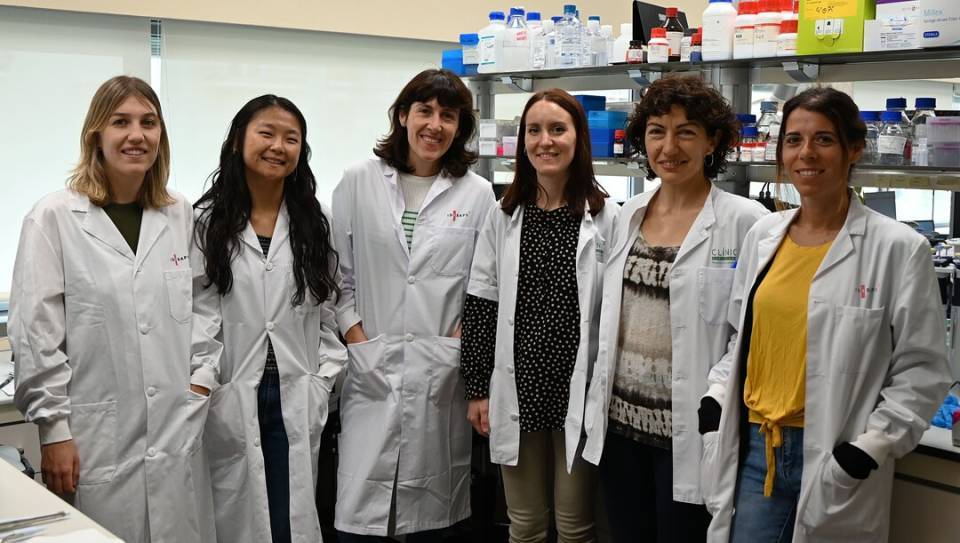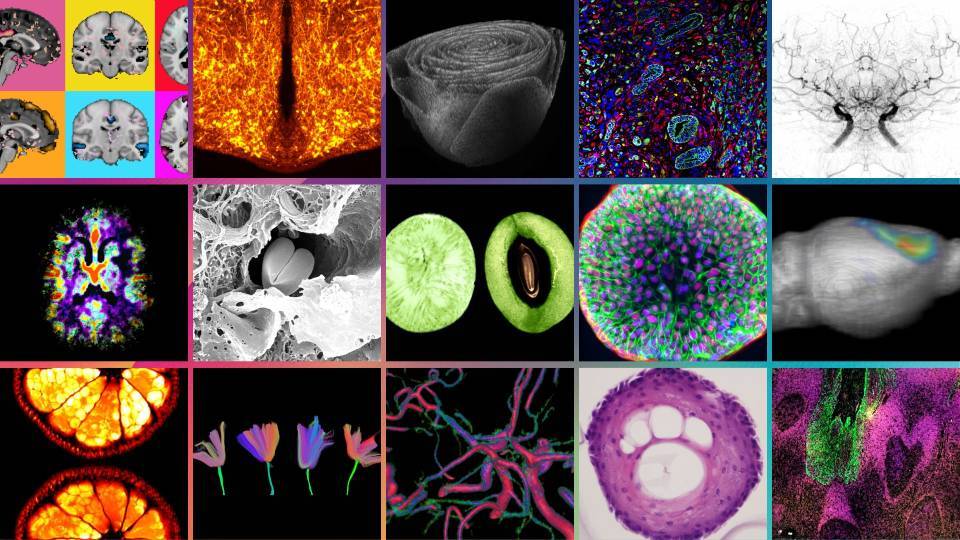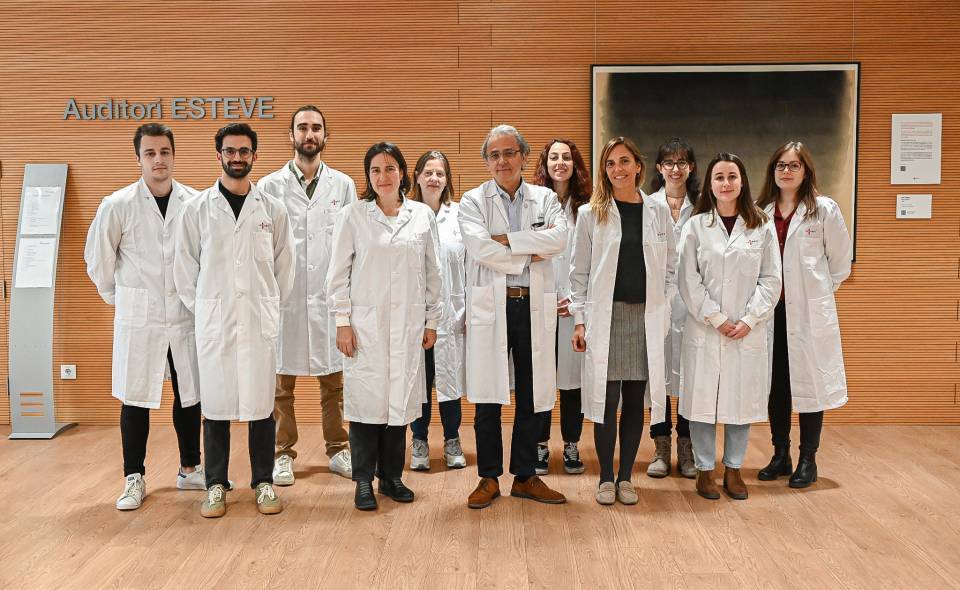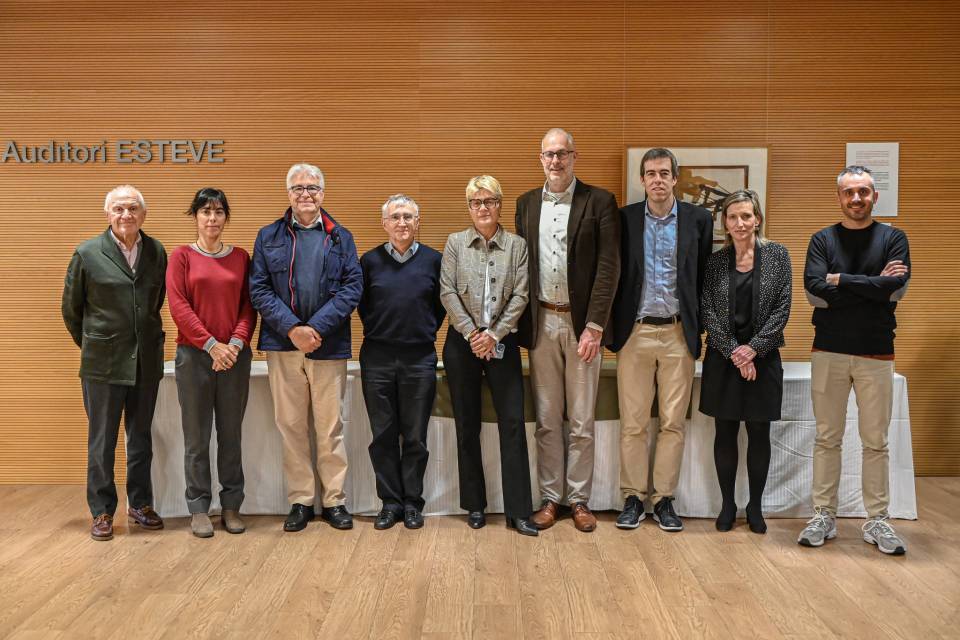Monomorphic post-transplant lymphoproliferative disorders include a series of processes, characterised by uncontrolled proliferation of B-cells, which occur after transplantation, that is to say, in patients with a weakened immune system. Although it is a relatively frequent complication, few studies have analysed these syndromes in the adult population and even fewer in infants and children. This makes it difficult to establish a reference treatment. “Moreover, these neoplasms are classified into different subtypes taking into account the morphology, that is, the architecture of proliferation and the shape of the cells, but it is not known whether this distinction affects the evolution or response to therapy”, says Itziar Salaverria, head of the IDIBAPS Molecular genetics of paediatric lymphomas research group.
Salaverria is joint principal investigator with Olga Balagué, a researcher in the Molecular pathology of lymphoid neoplasms group led by Elías Campo, in a study aimed at analysing tissue samples from 31 paediatric patients who had developed monomorphic post-solid organ transplant lymphoproliferative disorders. Specifically, 24 presented diffuse large B-cell lymphomas, while the other 7 had characteristics compatible with Burkitt lymphoma. The study, published in the journal Blood, evaluates the genetic characteristics of all cases and compares them with previously published data on these neoplasms in adult population with normal immune response. “Using techniques such as in situ hybridisation and next-generation sequencing, we were able to determine the number of copies and mutations present in 167 genes related to the formation of the lymphomas”, says Balagué.
The results show that the genetic profile of patients with diffuse large B-cell lymphoma is very simple and does not present the same alterations as in adult cases. On the other hand, the mutations and genetic changes present in the paediatric population with Burkitt's lymphoma are similar to those in immunocompetent individuals over the age of 18. “An example of this are the mutations we detected in genes such as MYC, ID3, DDX3X, ARID1A and CCND3”, say Julia Salmerón-Villalobos and Natalia Castrejón-de-Anta, researchers from the groups led by Salaverria and Campo, respectively, and co-first authors of the article. “These results suggest that cases with Burkitt's lymphoma should be differentiated from other monomorphic post-transplant lymphoproliferative syndromes and receive intensive treatment. On the other hand, and in accordance with previous work, patients with diffuse large B-cell lymphoma may respond better to less aggressive therapies”, adds Salaverria.
Despite the small number of samples analysed, which limits the study results, the researchers emphasise the importance of morphological diagnosis and analysis of the molecular profile of paediatric patients in order to determine the best treatment in each case. These patients present a high risk of toxicity, infection and rejection, and these procedures are therefore key to improving the care and attention they receive.
Reference article
Salmerón-Villalobos J, Castrejon-de-Anta N, Guerra-Garcia P, Ramis-ZaldivarJE, López-Guerra M, Mato S, Colomer D, Diaz Crespo FJ, Menarguez J, Garrido-Pontnou M, Andres M, Garcia-Fernandez E, Llavador M, Frigola G, Garcia N, Gonzalez-Farre B, Martin-Guerrero I, Garrido-Colino C, Astigarraga I, Fernandez A, Verdu-Amorós J, Gonzalez Muñiz S, González-Martínez B, Celis V, Campo E, Balagué O, Salaverria I. Decoding the molecular heterogeneity of pediatric monomorphic post-solid organ transplant lymphoproliferative disorders. Blood. 2023 Apr 13:blood.2022019543. doi: 10.1182/blood.2022019543.




